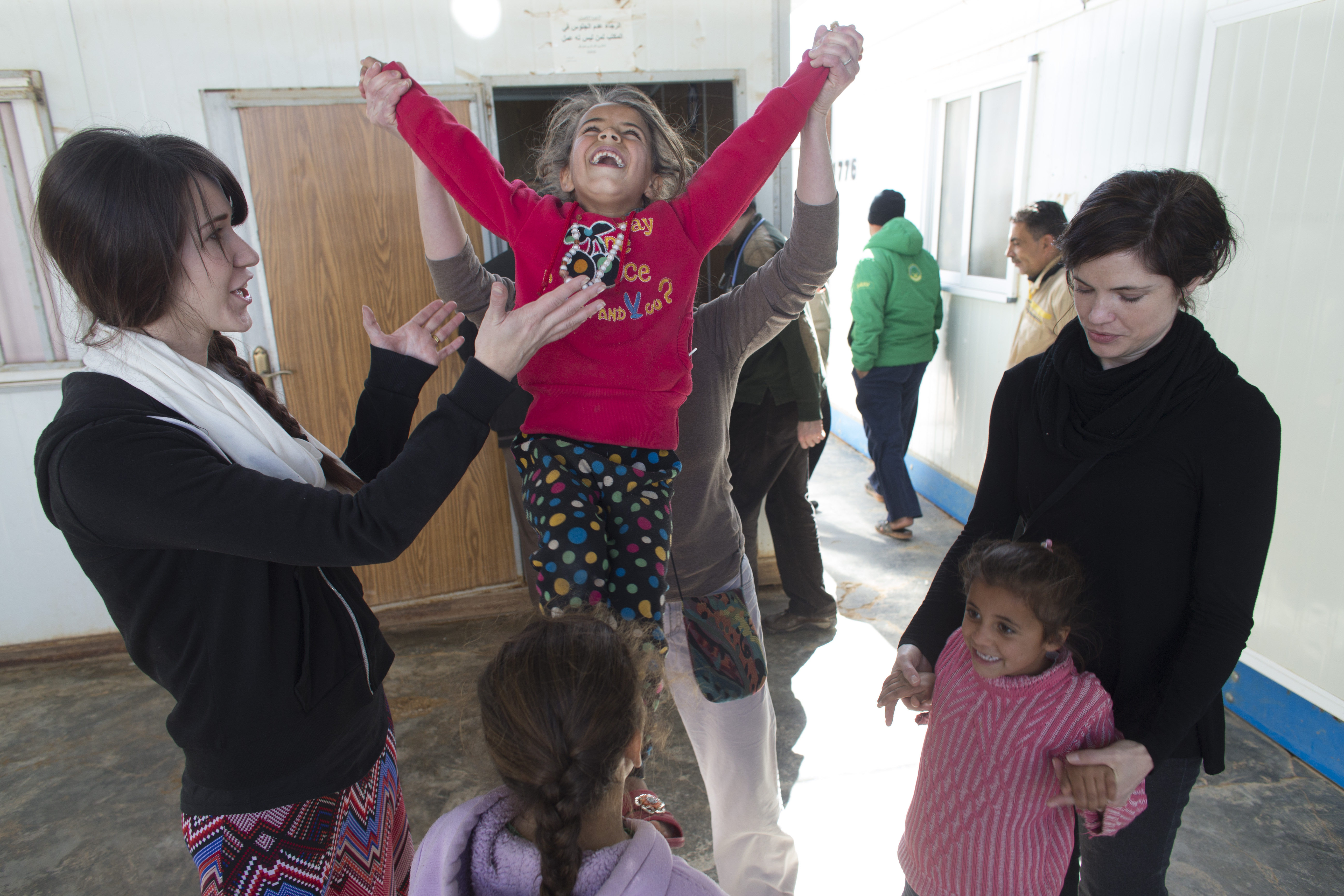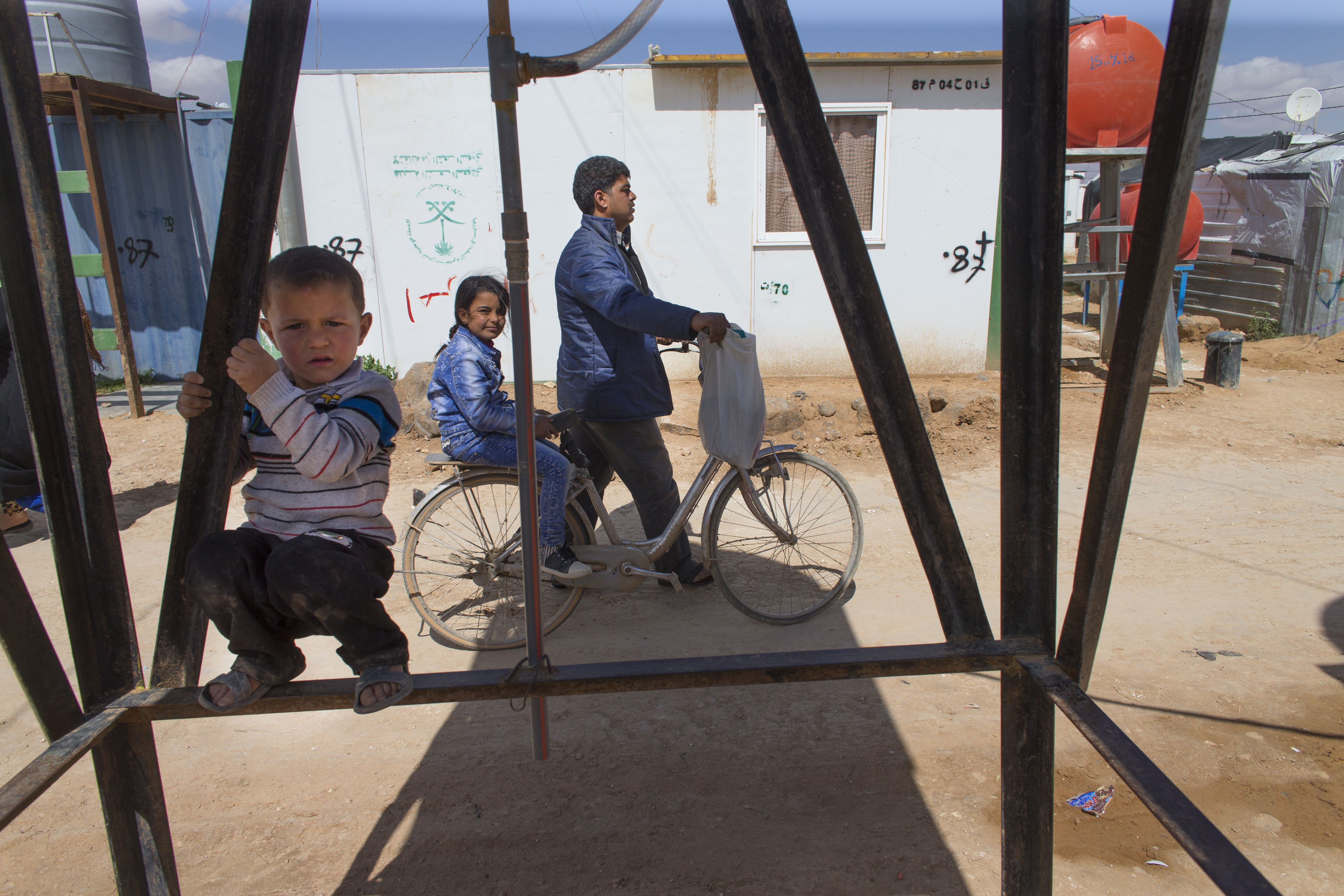
HELP FROM AFAR
Even as nervous governments shut their doors to Syrian refugees, individuals have responded to the crisis with heroic acts of generosity. In Milwaukee, one such local hero is Dr. Tarif Bakdash, a Syrian-American physician who is leading a team of volunteers that will provide medical treatment to the refugees—especially children—in Jordan's Zaatari refugee camp.
Pulitzer Center grantees Mark Johnson and Mark Hoffman are chronicling the efforts of Dr. Bakdash and his team for the Milwaukee Journal Sentinel.
This will be Bakdash's second mission to the region. The 51-year-old pediatric neurologist who grew up in Syria and works at Children's Hospital of Wisconsin told Johnson, "I feel 90 percent American. I belong here. But now we have a disaster. I was born there. I grew up there. I have a moral obligation."
MISSING OUT IN IRAN
The new Iran nuclear agreement that went into effect earlier this year was supposed to open the door to the resumption of trade with the Islamic republic. But the U.S. government is maintaining an onerous set of unilateral sanctions that prohibit U.S. companies from entering this lucrative market.
As Pulitzer Center grantee Reese Erlich reports for Vice News, "Chinese and European companies are scrambling to invest in Iran and bringing home multibillion-dollar deals—while U.S. corporations, barred from doing business with a newly-opening Islamic Republic, are forced to watch as their competitors tap into a market of 80 million people."
The big winners thus far: Airbus, the European consortium which assembles its planes in France and Germany, signed letters of intent to sell 118 jets to Iran at a list price of $27 billion; Italian companies signed memorandums of understanding to invest $3.5 billion to refurbish Iranian oil refineries and $6 billion to provide heavy machinery and France's Total plans to pump 150,000 to 200,000 barrels per day in Iran.
Meanwhile China is formalizing plans for $600 billion in investments over the next 10 years. "China is building roads, dams and other major infrastructure projects. It has also flooded the Iranian market with low-cost consumer goods, including cheap cell phones," says Reese.
ON THE MOVE
Last week was one of the busiest ever for the Pulitzer Center. Many thanks to our journalists and staff members who shared our recent reporting with schools and communities up and down the East Coast and out to Illinois.
Ann Peters accompanied grantees Stephanie Hanes and Alisa Roth to William & Mary for the Sharp Writer-in-Residence Program, a semester-long course jointly administered by the college and the Pulitzer Center. Jon Sawyer was with grantee Emily Feldman at Southern Illinois University Carbondale, for a symposium on human-rights reporting and presentations by Pulitzer Center student fellows Kayli Plotner and Anna Spoerre.
Photojournalist Matt Black discussed his "Geography of Poverty" project at Phillips Exeter Academy and at Boston University, where he was joined by Nathalie Applewhite and the performers and journalists associated with Circus Without Borders. Mark Schulte traveled with the Circus crew to Simmons College, Emerson College, La Salle College and six Boston-area secondary schools.
Back in Washington, DC, grantees and filmmakers Ian James and Steve Elfers, Larry C. Price, and Sharron Lovell shared their documentary work with an audience of 225-plus at the DC Environmental Film Festival. They reached hundreds more as they fanned out to sessions at Campus Consortium partner American University and, with Fareed Mostoufi and Lauren Shepherd, to eight DC-area secondary schools. After a discussion on displacement, one high school student was quick to make the global/local connection: "What sticks with me is the fact that many countries are alike and going through similar things," he told Fareed. "People in DC are being moved. The same thing is happening in China."
Until next week,
Tom Hundley
Senior Editor





